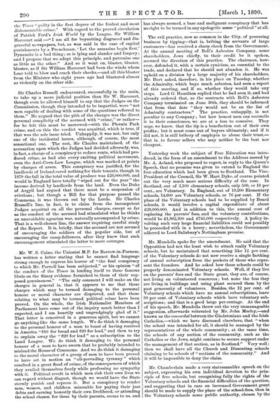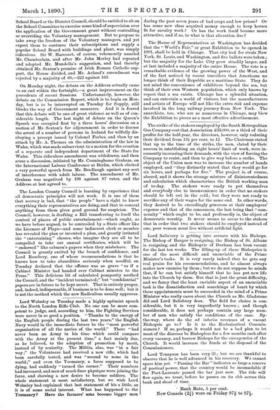Mr. Chamberlain made a very statesmanlike speech on the subject,
expressing his own individual devotion to the prin- ciple of free schools, but recognising fully the rights of the Voluntary schools and the financial difficulties of the question, and suggesting that in case an increased Government grant should be made to supply the place of the school-fees, then in the Voluntary schools some public authority, chosen by the School Board or the District Council, should be entitled to sit on the School Committee to exercise some kind of supervision over the application of the Government grant without controlling or overriding the Voluntary management. But to propose to take away the freedom of the Voluntary managers, and yet expect them to continue their subscriptions and supply a popular School Board with buildings and plant, was simply ridiculous. Sir W. Harcourt, of course, vehemently assailed Mr. Chamberlain, and after Mr. John Morley had repeated -and adopted Mr. Mundella's suggestion, and had thereby obtained Mr. Sexton's promise of Irish Roman Catholic sup- port, the House divided, and Mr. Acland's amendment was rejected by a majority of 60,-223 against 163.







































 Previous page
Previous page